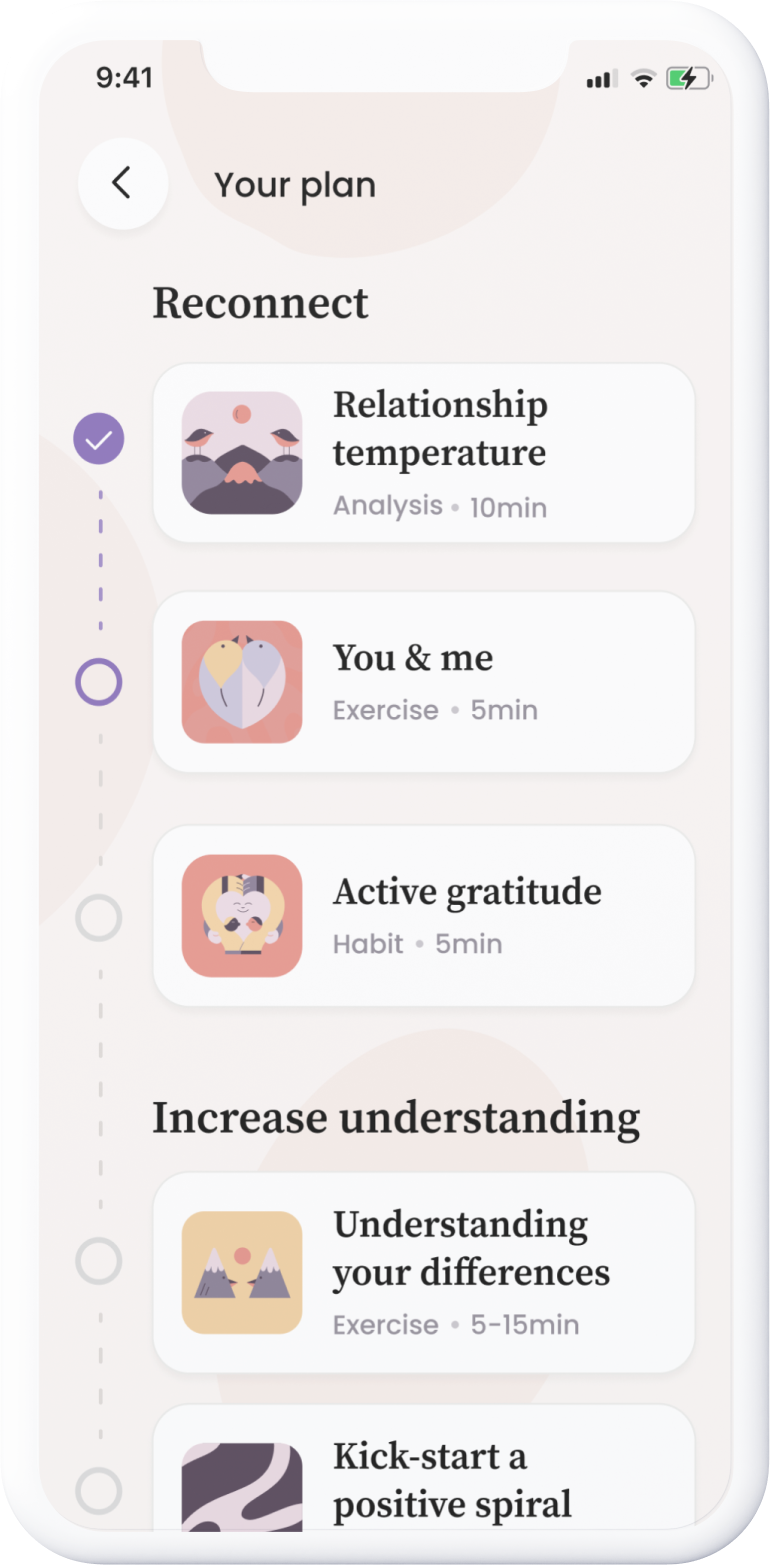
Do you feel like you are in an equal partnership? Do you sometimes feel like a parent to your partner? Do you take on a larger share of the responsibilities that are meant to be shared between you? Do you feel that there's an unfair distribution of household chores and responsibilities in your relationship?
Feeling like both partners take responsibility for the shared aspects of life is important for a healthy and equal partnership. Striving for equality means sharing responsibilities and being involved in decision-making for both parties. This can be more challenging than initially thought in many relationships.
Equality in relationships can change over time
As time goes on, living in an equal partnership can become more difficult. While it's fine to have different roles and responsibilities, it becomes a problem if one partner feels unfairly burdened with a significant aspect of everyday life. Despite our awareness of structural differences based on gender, living according to our values of equality can be more challenging than expected.
Many couples report that they feel like they are more in a one-sided relationship after having children together. There are several possible explanations for this, including norms and differences in expectations between men and women. How responsibilities and parental leave are distributed is influenced by norms, practical aspects, and economic factors.
Many women end up spending more time at home with the children, which may give them an advantage in the household, but also sets them back in the job market. This is leading to a reinforcing pattern of inequality over time. The distribution of parental leave has been found to have significant implications for the later stages of the relationship and parenthood.
Tips for a more equal partnership
1. Start talking about equality in relationships
Do you feel that the distribution is unfair and that you’re not in an equal relationship?
Have you communicated this when you have a good opportunity to discuss it? Maybe you find yourself sighing or reacting when it feels unfair? What do you think your partner feels about the distribution of responsibilities? Does your partner think you have an equal partnership? How do you both want it in your relationship?
There are many important questions to discuss together. It may feel unfair to be the one to initiate the conversation and ensure that you talk about it, but it's the first step.
2. Assess the distribution of responsibilities
Get a clear understanding of how things are in your relationship. Start by reviewing the important areas of responsibility you both have and who does what within those areas. The next step is to discuss a possible redistribution and what it could look like for both of you. It's important to feel equality in relationships.
3. Evaluation and joint planning
Create opportunities to regularly check in on how things are going and how each of you feels. A popular format is to schedule "weekly meetings" where the purpose is both to check in and plan together. This means sitting down together every week (or more often!) to review what's happening during the week and any shared commitments.
This makes it easier for the partner who does not feel they’re in an equal relationship or may not see what the other is doing (or who is accustomed to the other always doing things).
The weekly meetings are also a good way to see deadlines, commitments, and the actual distribution of shared responsibilities. Review the major areas of responsibility and make a new distribution when you feel it’s needed.
Backing off or stepping up for equal partnership?
Sometimes, one person in the relationship may need to step back so that the other can see more clearly where they need to step up. If you're the one doing the most, are there areas where you can let go of the responsibility and delegate them to your partner? This advice works best in combination with the three steps above.
It's important to be prepared for the discomfort of letting go of control over something you've handled yourself. You may need to work on tolerating the uncertainty of how and when things will be done (and that they may not be done exactly as you wish).
Both of you need to have a great deal of acceptance for each other and remind yourselves that you're doing this to bring a more equal partnership and changes that will ultimately be better for you as a couple.
Get help strengthening equality in relationships with Ally
In the Ally app, you'll receive help and guidance to understand and work on relationship problems. Through the exercises in the app, you'll be guided toward a stronger and more equal relationship and you use the app entirely on your own.
Ally was developed by licensed psychologists Clara Zelleroth and Helga Johnsson Wennerdal to make the methods they use in couples therapy more accessible to everyone.
There are exercises in the app that can help if you want to live more equally, for example "Addressing your needs''. This exercise focuses on prioritising personal needs and communicating them to your partner, which can be especially helpful in addressing challenges towords equality in relationships.








